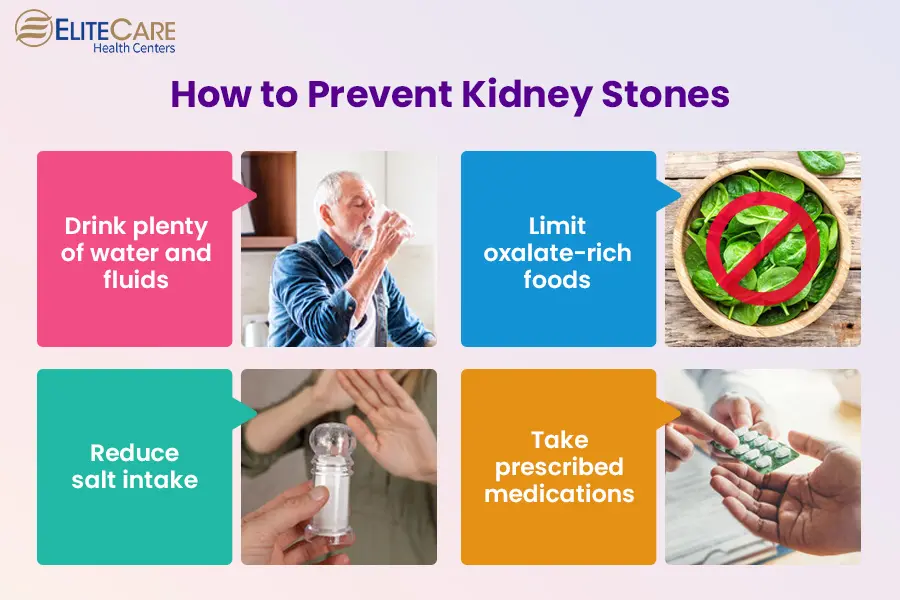How to Separate Between Kidney Stones vs UTI: Trick Factors and Diagnostic Tips
Exploring the Symptoms and Causes of Kidney Stones in Contrast to Urinary System Tract Infections: A Thorough Overview
The exploration of kidney stones and urinary system infections (UTIs) discloses a complex interaction of signs and underlying causes that necessitate cautious assessment. What are the key differences in their symptoms, and exactly how might these notify treatment strategies?
Overview of Kidney Stones
Kidney rocks, likewise called renal calculi, kind when certain substances in the urine crystallize and accumulation, resulting in the development of difficult down payments within the kidneys. These rocks can differ in dimension, varying from a grain of sand to a golf round, and can be made up of numerous products, the most typical being calcium oxalate, uric acid, struvite, and cystine. The development of kidney stones is influenced by several variables, consisting of dietary routines, liquid consumption, and hereditary proneness.
Symptoms of kidney rocks might include extreme pain in the back or side, blood in the urine, queasiness, and regular urination, specifically as the stone moves via the urinary tract. Medical diagnosis generally involves imaging studies such as ultrasound or CT scans, alongside urinalysis to determine the rock's structure.
Therapy alternatives differ based on the size and sort of stone, along with the severity of signs and symptoms (Kidney Stones vs UTI). Little rocks may pass normally with increased liquid intake, while bigger stones may need medical interventions such as lithotripsy or surgical elimination. Recognizing the pathophysiology and danger elements associated with kidney stones is crucial for efficient avoidance and monitoring
Summary of Urinary Tract Infections
Urinary system tract infections (UTIs) are typical microbial infections that influence any type of component of the urinary system, consisting of the kidneys, ureters, bladder, and urethra. They predominantly take place when bacteria, typically from the stomach system, go into the urinary system, leading to inflammation and infection.
The frequency of UTIs is especially greater in females than men, mainly because of physiological differences, such as a much shorter urethra. Danger elements include sex, particular contraceptive methods, urinary system retention, and dehydration. The diagnosis of UTIs is typically validated with pee tests, which might reveal the existence of germs, leukocyte, or red cell.

Signs And Symptoms of Kidney Stones
The discomfort related to kidney rocks can manifest in different ways, commonly leading individuals to seek clinical attention. One of one of the most common symptoms is extreme pain, generally localized in the lower back or side, which may emit to the abdominal area or groin. This pain, usually referred to as sharp or cramping, can happen suddenly and may rise and fall in intensity.
Furthermore, people may experience hematuria, or blood in the pee, which can range from tiny total up to noticeable discoloration. This symptom may be gone along with by adjustments in urinary routines, such as raised regularity or necessity, as well as discomfort view publisher site throughout peeing. Nausea or vomiting and vomiting are additionally widespread, typically arising from the body's reaction to extreme pain.
Sometimes, people might experience high temperature and chills, specifically if a secondary infection develops because of the obstruction caused by the rocks. Overall, the combination of serious discomfort, hematuria, altered urinary system patterns, and intestinal signs and symptoms can provide substantial understanding into the visibility of kidney stones, requiring timely clinical evaluation and intervention. Recognizing these symptoms is crucial for prompt medical diagnosis and reliable administration of the problem.
Signs of Urinary System Tract Infections
Infections within the urinary system system typically offer a series of distinctive signs that can considerably impact everyday life. The most common signs and symptoms consist of a persistent impulse to urinate, usually come with by a burning feeling throughout peeing, called dysuria. People may likewise see this experience enhanced frequency of urination, generating percentages of pee each time.
Other notable signs and symptoms consist of cloudy or fetid pee, which might suggest the existence of germs or pus. In some instances, urine might appear pink or red due to the visibility of blood, a problem called hematuria. In addition, people might experience pelvic discomfort or stress, which can further worsen the feeling of seriousness.
Systemic symptoms might likewise manifest, such as fever, chills, and fatigue, specifically if the infection has actually ascended to the kidneys. It is important to recognize these signs early, as untreated urinary tract infections can bring about more serious complications. Kidney Stones vs UTI. Trigger clinical focus is advised when these symptoms are observed, enabling appropriate analysis assessment and therapy to reduce discomfort and protect against further wellness concerns
Reasons For Each Condition
Regularly, kidney stones and urinary system system infections emerge from distinct yet often overlapping causes that can impact people in a different way. Dehydration, not enough fluid consumption, and high-sodium diet regimens can intensify these conditions, advertising condensation within the urinary system system.

Understanding these unique causes is essential for avoidance and treatment. Kidney Stones vs UTI. While way of living alterations may mitigate the risk of kidney moved here stones, ideal hygiene and punctual therapy of urinary tract infections are vital for decreasing their reappearance and associated problems
Verdict
In summary, kidney stones and urinary system tract infections existing distinctive symptoms and underlying causes. Kidney rocks are identified by serious discomfort and metabolic elements, while urinary tract infections mainly include bacterial infections bring about urinary system urgency and discomfort. Both problems can result in hematuria, their formation systems differ considerably. Recognizing these differences is important for effective diagnosis and therapy, eventually enhancing person end results for those influenced by either condition.
The exploration of kidney stones and urinary system system infections (UTIs) reveals an intricate interplay of signs and underlying reasons that necessitate careful assessment.Urinary tract infections (UTIs) are usual bacterial infections that impact any type of part of the urinary system, including the kidneys, ureters, bladder, and urethra.Regularly, kidney rocks and urinary system tract infections occur from distinctive yet sometimes overlapping causes that can influence individuals in different ways.In recap, kidney rocks and urinary system system infections existing distinct signs and symptoms and underlying reasons. Kidney rocks are defined by extreme discomfort and metabolic aspects, while urinary tract infections primarily include bacterial infections leading to urinary necessity and pain.